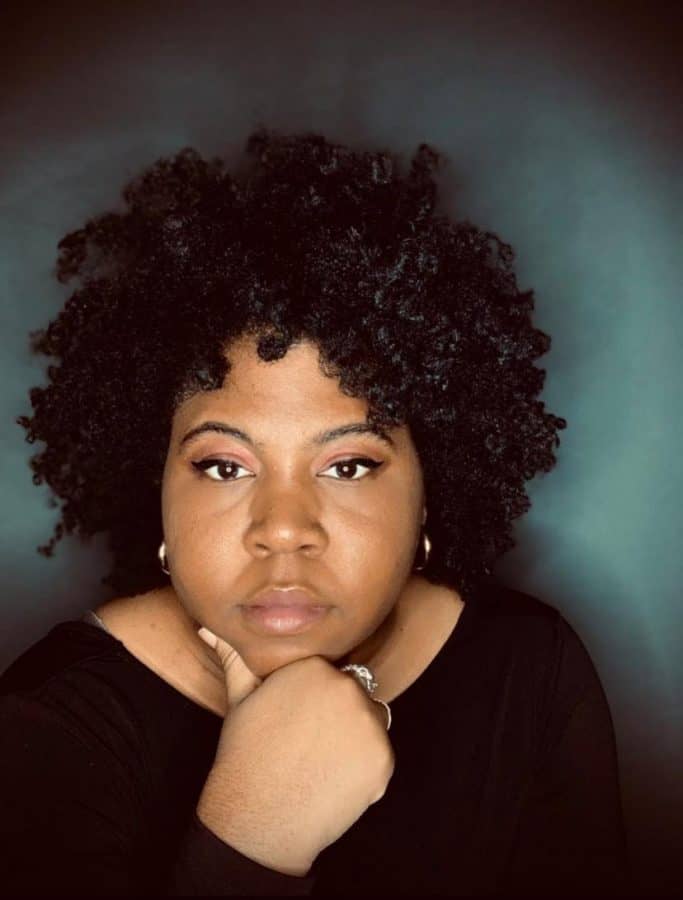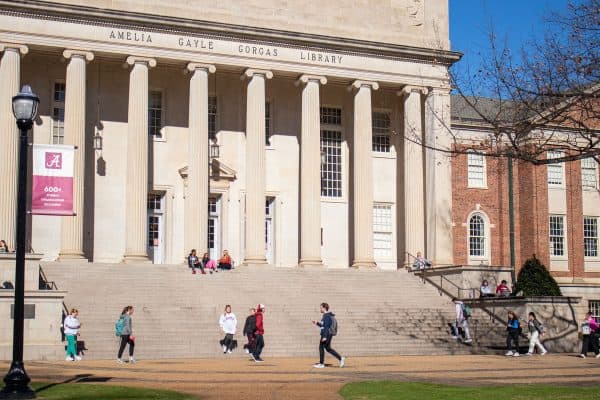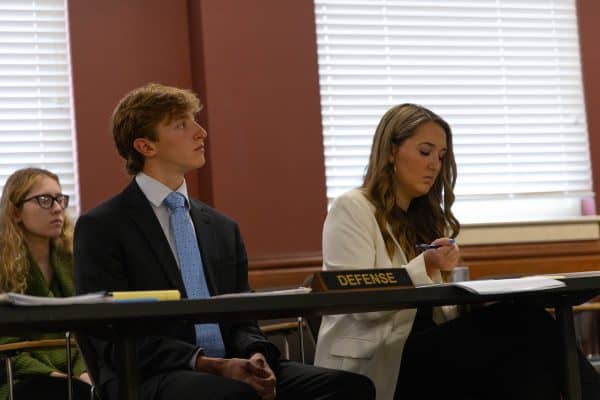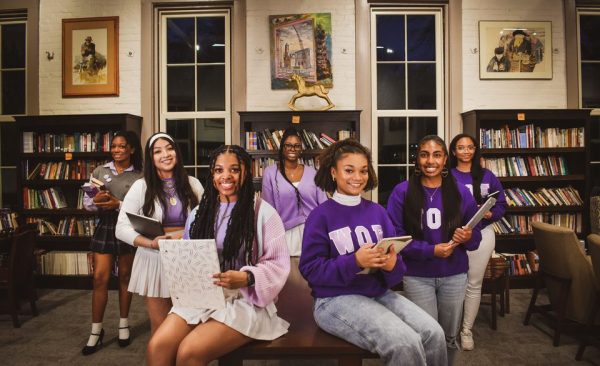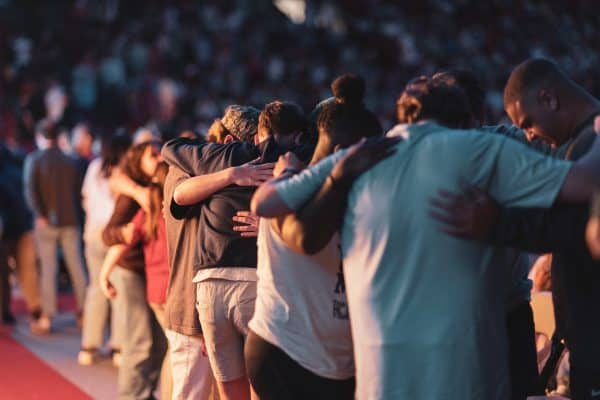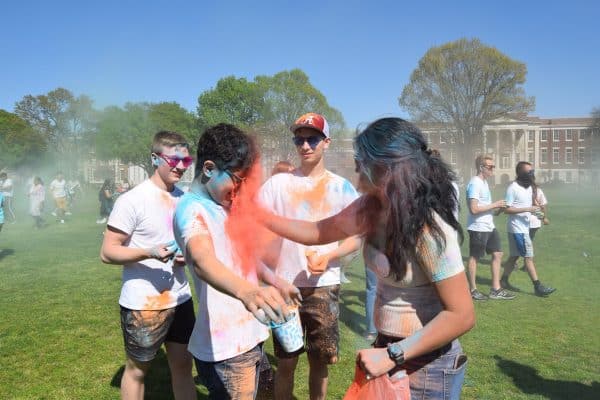“I’m done proving myself”: Alabama’s new poet laureate muses on her love of art and the South
September 22, 2021
According to the Encyclopedia of Alabama, in 1930, Alabama created the title of poet laureate to serve as the “public face of poetry for the state” to raise awareness and increase appreciation for the art of poetry.
On Sunday, Aug. 22, during the annual Alabama Writers Cooperative conference, Ashley Jones, a creative writing faculty member at the Alabama School of Fine Arts and a poet based in Birmingham, Alabama, became Alabama’s new poetic face as the 13th poet laureate.
Jones’ work encompasses topics of the South and Blackness; her work feels both personal and cultural. While addressing the many traumas Black people have suffered in the past and present, she still uplifts and celebrates Black joy, life and art.
When it was announced that she was the official selection to be Alabama’s new poet laureate, Jones said she was surprised, but relieved because it was a long process.
She said the road to becoming Alabama’s poet laureate was a long one that started sending in thick nomination packets and ended with a vote for the official selection.
Although it was nerve-wracking to hear the decision of something she had worked on and planned for so long, all those emotions melted away into pure excitement when it became official.
“I didn’t realize just how important it was going to feel,” Jones said. “I knew it was coming, or at least I hoped that it was coming, and sitting there watching everyone vote to make me the official selection, everything sort of dawned on me all at once.”
She said she recognized the history she made as the first Black person to hold the position, and for a moment it was overwhelming. More than anything, she said she was honored and grateful that people had confidence in her to serve as the poet laureate.
“I can’t imagine a better person for our next poet laureate than Ashley Jones. I’ve long admired her poetry, and I stand in awe of all she has done already as a literary citizen,” Jennifer Horne, the previous poet laureate, said in a statement.
Horne said as a young African-American woman, Jones will bring a fresh perspective and new energy to the position, and she is sure that Jones will represent Alabama well within the state and on a national stage.
“I’m delighted to be able to pass the torch to her and look forward to supporting her in her work for the next four years,” she said.
Kwoya Fagin Maples is a UA creative writing professor, author of the book “MEND,” and a former ASFA faculty member. When she moved to Birmingham about 15 years ago, the poetry community was small and separated between the academic and spoken word.
Later on, she found her community and saw how close-knit the poetry community was.
“The idea of having a very tight-knit literary community is the first thing that a lot of aspiring young writers don’t think of and realize how important that is, like having that core group. Because, as writers, we have these really huge goals, right? We have these very lofty goals, and we want our work to reach the world at large,” Maples said.
She said one of her colleagues and a fellow writer in Birmingham, TJ Beitelman, helped her realize that the community around you may be your audience instead of the broader “mythical” audience that exists on a national scale.
“It’s really become clear to me, especially in recent years, how true that is,” Maples said. “So in terms of building the poetry community in Birmingham, Ashley Jones has been doing that ever since she arrived back in Birmingham.”
Maples said that when she first met Jones at ASFA, she was “immediately impressed by her lack of insecurity” and how Jones didn’t let writing intimidate her at all, which Maples hadn’t seen before.
“It allowed her to widely share her work with the Birmingham community, with Alabama, [and] nationally because she’s just unafraid when it comes to putting her work out there,” Maples said. “And to work with someone every day, for five years who was like that, someone younger than me, I was just completely inspired by her all the time. … I truly felt blessed that we worked in the same space and that I was able to be influenced by her so directly.”
Maples said that she has seen Jones present in a variety of spaces in Alabama to audiences of all ages and that Jones has always managed to create an exciting and engaging atmosphere around poetry.
“So, it’s almost like she’s been doing the job of poet laureate in terms of outreach and making poetry relevant for a very long time,” Maples said.
Now, as the newly appointed poet laureate, Jones sees this title as not only an opportunity for herself but an opportunity for the state and communities she represents.
She said Alabama has a chance to start confronting its history, starting with her being the first person of color to be named poet laureate in the 91 years since the position was established.
“To have nearly a century of poet laureates in our state, and they have not necessarily represented every community, that’s really huge. So I think there’s an opportunity here to wrestle with that history and not see it as, ‘Oh, we have one; now we’re done,’” Jones said. “No, the fact that it’s 2021 and we have one, we need to examine, ‘Okay, why is that? What can we do to make sure that it’s not another 91 years until any other kind of person can be the poet laureate?’”
Jones is interested in using this position to help Alabama confront its history, and she’s passionate about spreading art and the use of poetry in healing.
“Poetry can save people, whether that’s giving them confidence in their own voice, whether it’s showing them that they’re not alone, whether it’s providing opportunities to be paid for their work, there’s just so many ways that poetry can do good in the world,” Jones said. “So now [with] this new platform, hopefully, there’s a way for me to continue the work I’m already doing, but also just to highlight how important poetry really is, not only to our state but just to everybody everywhere.”
Before becoming the poet laureate, Jones worked to enrich Alabama’s poetry community by founding the Magic City Poetry Festival, which brings together local poets as well as poets from all over the country; helping establish the Birmingham chapter of PEN International, which works to ensure that people everywhere have the freedom to create; working with the Alabama Writers Cooperative as a board member; guest-editing “Poetry” magazine with a “quilt of Alabama poets”; and being actively engaged with social justice work.
“We’ve heard of all the Black people in politics and in science, technology, all those things, but it’s really time for us to re-center with Black artists because we’ve been holding it down for a really long time for everybody,” Jones said.
She’s also helping artists realize that there is a thriving art community within the South.
Jones said that, though she was born and raised in Birmingham, she believed that if she wanted to be a real writer, she’d have to move to New York or Los Angeles. It wasn’t until she moved to Miami for graduate school that she realized there were plenty of artists in her hometown.
“The problem, I think, is that we believe the lie that we’re not worth anything,” Jones said. “I feel like growing up in the South, you are sort of expected to be ashamed of where you’re from when instead, we should be celebrating. … There’s something wrong here. It’s wrong everywhere. It’s just easier to point the finger at us because you can say, ‘Oh, well, y’all had slavery down there.’ Well, yeah, but who did this slavery benefit? Think about that?”
Jones said that this is another issue we need to wrestle with and that she has seen many poets working for years to build up the community.
“I think about my friend, Voice Porter, who recently passed away, who was such an incredible voice and uniter of poets in Birmingham. People like him have been working for decades to keep the arts alive,” Jones said.
Once she moved away, she thought about all the work people like Porter had done and how it was all still there. So she decided to come back and help where she could, and once she realized how much Birmingham had to offer, her perspective and her poetry both changed.
“I started to write about the South and being more authentic to myself, which I think made my poetry better. Just being an advocate for the South has been really fulfilling because there’s so many great things here,” Jones said. “Not only is our food the best food in the United States of America but when we do poetry, when we do anything, there’s a spirit in it that is just unmistakable. No one can imitate it.”
She advises young writers of color to find what feels authentic to them, even though there might be moments of self-doubt or alienation due to cultural issues others might not understand along the way.
In moments like that, she advises writers to “find their ancestors” to connect their cultural perspective to their overall experience.
She said that while finding these people, it’s important to understand that if they made it, “you can make it as well,” but it doesn’t have to look like traditional pictures of success.
“If I had listened to what I was told was the way to go, I’d be somewhere starving in New York right now wishing I was back home. Instead, I decided I’m going to do what I want to do, which is to write. I’m going to do it where I want to do it, which is Birmingham. And I’m going to write what I want to write, which is about me and my people, and the struggle and the history,” Jones said.
She said young writers should know that they are enough “period,” no matter what; there is no contingency.
“We are whole and enough on our own, and that’s something that I think I definitely needed to meditate on when I was a student because it can be really rough being a student, especially in grad school,” Jones said. “So I would just let people know, you’re already enough, take the pressure off yourself; especially now, like we are living through some serious trauma on top of the trauma that we already had going on. So just let yourself know that you are fine. You’re alright; you’re breathing; you made it: That can be plenty.”
As things are constantly changing, for Jones, being hopeful and open is something she’s been embodying.
Jones said she lost her father in April, and it changed everything in her life. It opened a part of her that is “tender and hurt,” but it also opened a sense of gratefulness for the time she got to spend with him.
She said she is open career-wise too; after getting the chance to release three books with publishers that she loves and do work she’s proud of.
“I’m just hopeful and open to whatever comes next,” she said. “I feel like, at this point in my career, I’m done proving things. I’ve shown that I can write whatever I need to write. Right now, I’m just open to what happens next.”
On Tuesday, Sept. 7, Jones released her third book of poetry, “Reparations Now!,” a collection that takes on trauma past and present and current events while uplifting Black joy.
Currently, though, Jones is working on essays.
“After I wrote this book, I just kind of felt the need to say more, so I’m writing some essays, which maybe will become even more essays, which will maybe become a book of craft, work, criticism, whatever you want to call it,” she said.
Those who want to connect with her can check out her website, and those looking to plug into the poetry community in Birmingham can check out the many events the Magic City Poetry Festival has coming up.

